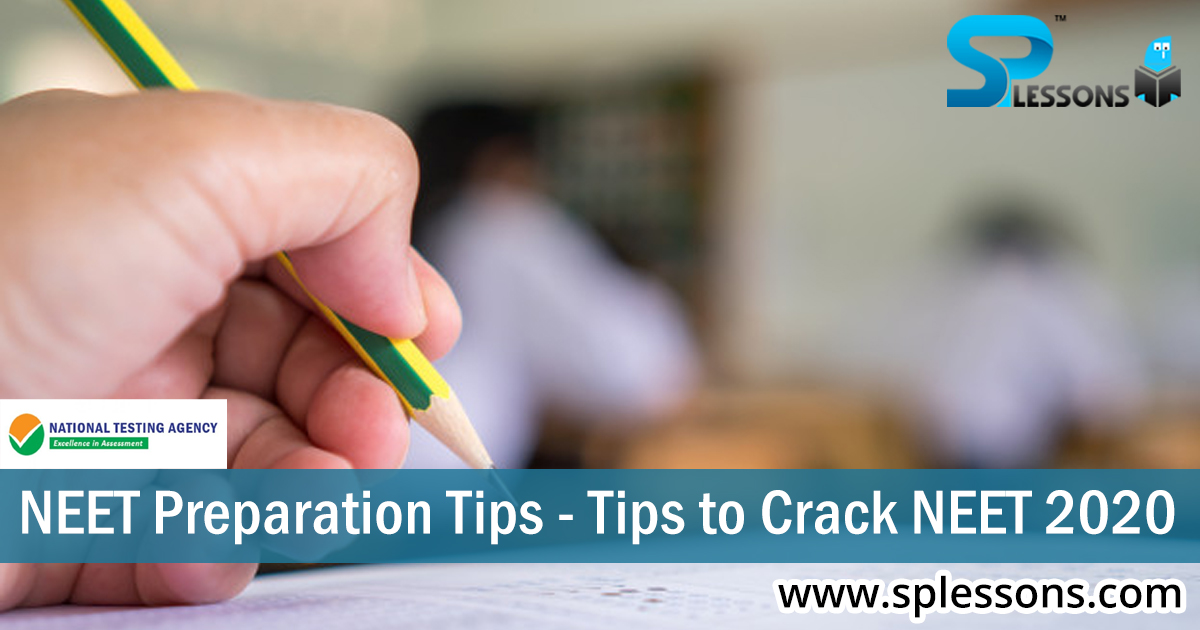 Introduction
Introduction
NEET exam is one of the toughest entrance exams of the country because of the number of appearing students as compared to the seats in government medical colleges in India. This year around 15 lakhs students registered for NEET 2020.
The most important thing to score good marks in the NEET exam is the hard work, consistency and good sets of the book with the right guidance.
 NEET
NEET
NEET Exam Pattern 2020
- Exam Mode - Pen and Paper-based. Primarily offline, candidates are given an OMR sheet to mark the answers with a black or blue ballpoint pen
- Duration - Three hours
- Language/Medium - English, Hindi, Assamese, Bengali, Gujarati, Marathi, Tamil, Telugu, Oriya, Kannada and Urdu.
- Question Type - 180 Multiple Choice Questions ( 45 Physics, 45 Chemistry, and 90 Biology)
- Total marks - 720 marks
- Marking Scheme - 4 marks for each correct answer Minus 1 mark will be deducted for a wrong answer.
1. 45 questions will be asked from the Physics in NEET exam and the syllabus includes NCERT books of class 11th and 12th.
2. Read and understand the theory part from your class notes and clear you're all the concepts from each and every chapter.
3. Complete all the chapter, you can't skip even a single chapter because in the NEET exam they may ask questions from any Chapter and a single mark can create a huge difference in your All India Rank.
4. After completion of the theory part, practice numerical from good reference books because the main thing which creates a difference is the unlimited question practice.
5. Practice questions in an exam like environment with a fix time limit. This will increase your speed and accuracy. Time management plays a very important role in NEET like competitive examination because you have to solve 180 questions in 180 minutes.
6. You should also make short notes for quick revision before your NEET 2020 exam.
7. You may follow any book during NEET preparation for Physics from below mentioned books.
-
a. Concepts of Physics by H. C. Verma
b. NCERT- Physics Part 1 and Part 2
c. DC Pandey Objective Physics
d. Fundamentals of Physics by Halliday, Resnick, and Walker
e. Problems in General Physics by I. E. Irodov
There are three sections in Chemistry i.e. Physical Chemistry, Inorganic Chemistry, and Organic Chemistry.
1. Physical Chemistry - 15 questions are asked from this section. Most of the questions are numerically based so you have to practice a large number of questions after the completion of the theory part. Also, learn all the formulas and important points.
2. Inorganic Chemistry - From this section, also 15 questions are based. Learn all the exceptions from this part because exceptions are most important from all chapters. Read and understand the theory part of the NCERT book. You may find the language of NCERT book slight difficult so you can take help from your class teacher or from video lectures available on different educational platforms.
3. Organic Chemistry - The same 15 questions are also asked from this part. The theory part is most important to score good marks in the NEET exam. Learn all the name reactions and revise the theory part at least 2-3 times before the NEET exam.
4. Solve previous year papers at home so you have an idea about the level of questions in the NEET exam.
5. Practice a large number of questions from good reference books for better practice at home in an exam like environment.
6. Revision of the back portion is also important with the ongoing syllabus because, in Chemistry, questions are mainly based on the theory part.
7. You may follow any book during NEET preparation for Chemistry from below mentioned books.
-
NCERT Chemistry
1. Physical Chemistry by O.P. Tandon
2. Organic Chemistry by Morrison and Boyd for Organic Chemistry
3. Modern’s ABC of Chemistry for class 11th and 12th
4. Concise Inorganic Chemistry by J. D. Lee for Inorganic Chemistry
5. Dinesh Chemistry
1. NCERT book of class 11th and 12th is the most important book for the NEET exam because most of the questions in the NEET exam are based on the theory part of the NCERT book.
2. Read and revise the NCERT books at least 4-5 times before your NEET exam. Read and understand each and every point given in the NCERT book.
3. Perfect the NCERT book and by doing so you'll be able to score good marks in your NEET exam.
4. Practice NCERT based objectives from good reference books for a better understanding of the theory part.
5. Practice previous year questions of NEET and AIIMS because sometimes they may directly ask few questions from previous years' papers.
6. Revise NCERT on a quick mode like reading only highlighted points and examples for better performance in the NEET exam.
7. You may follow any book during NEET preparation for Biology from below mentioned books although NCERT is sufficient because 80-85 percent of questions are directly asked from the NCERT.
-
1. NCERT Biology of Class XI and XII
2. NCERT Exemplar
3. NCERT Objectives by MTG
4. NCERT at your fingertips.
5. Trueman's Biology Vol 1 and 2
6. Objective Biology by Dinesh
7. Pradeep Publication's Biology
8. GRB Bathla's Publication's for Biology




